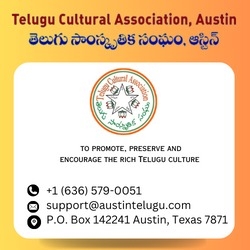
- nripage
- 08 Mar 2024 07:36 AM
- Event Planning
Marketing and promotion play crucial roles in the success of any event, helping to generate excitement, drive attendance, and maximize engagement. In today's digital age, event planners have a multitude of tools and strategies at their disposal to effectively market and promote their events. Here are some key strategies to consider:
-
Social Media Marketing: Social media platforms such as Facebook, Instagram, Twitter, and LinkedIn offer powerful tools for reaching and engaging with your target audience. Create compelling content that highlights key event details, such as speakers, agenda, and special features. Use hashtags, polls, contests, and live streams to foster interaction and buzz around your event. Encourage attendees to share their experiences on social media, amplifying your reach and visibility.
-
Email Campaigns: Email marketing remains one of the most effective channels for promoting events. Build an email list of past attendees, prospects, and industry contacts, and craft engaging email campaigns to keep them informed and engaged. Send personalized invitations, event updates, and reminders, and include compelling visuals and calls-to-action to encourage registration and attendance. Segment your email list based on audience interests and preferences for targeted messaging.
-
Influencer Partnerships: Collaborating with influencers and industry experts can help amplify your event's reach and credibility. Identify influencers with relevant audiences and expertise in your event's niche, and invite them to participate as speakers, panelists, or brand ambassadors. Leverage their social media platforms and networks to promote your event and attract their followers' attention. Consider offering special incentives or perks to incentivize influencer participation and engagement.
-
Traditional Advertising Methods: While digital marketing channels are essential, don't overlook the power of traditional advertising methods such as print ads, radio spots, and direct mail. Identify relevant publications, radio stations, and local businesses where you can advertise your event to reach broader audiences. Design eye-catching visuals and compelling copy that communicates the value and appeal of your event, and track the effectiveness of your advertising efforts to optimize future campaigns.
By leveraging a combination of social media marketing, email campaigns, influencer partnerships, and traditional advertising methods, event planners can create buzz, drive attendance, and ensure the success of their events. Tailor your marketing strategy to your target audience and event objectives, and continuously monitor and optimize your efforts to maximize impact and ROI. With thoughtful planning and strategic execution, your event is sure to stand out and leave a lasting impression on attendees.










































